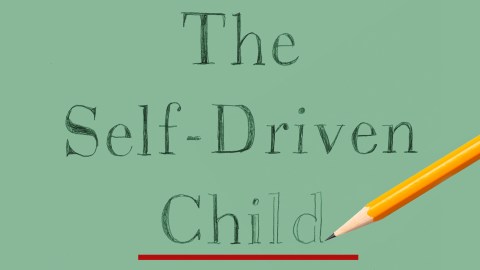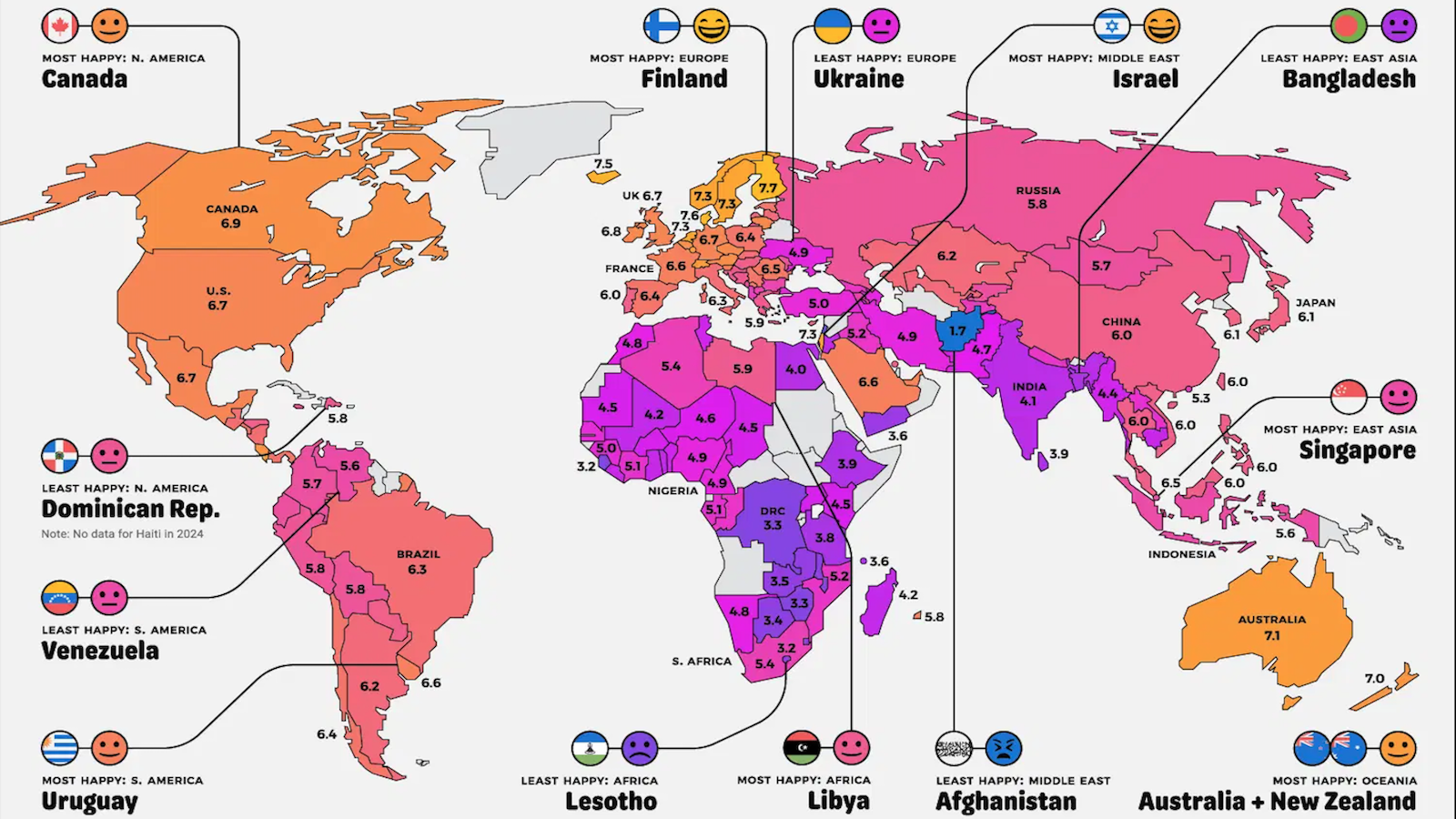Adults must guide kids’ lives, and give them a sense of self-control

In recent years, we’ve learned a lot about the damage athletes suffer from hitting their heads too much—either on soccer balls or on the 260-pound linebacker in their way. Today, we think about the long-term consequences of concussions: “Yeah, he looks okay now, but too many more of those and he’s not going to remember his kids’ names.”
We think stress should be talked about in this way, too. Chronic stress wreaks havoc on the brain, especially on young brains. It’s like trying to grow a plant in a too-small pot. As any casual gardener knows, doing so weakens the plant, with long-term consequences. Rates of stress-induced illnesses are extremely high in every demographic, and researchers are working furiously to uncover the reasons behind the rise in anxiety disorders, eating disorders, depression, binge drinking, and worrisome patterns of self-harm in young people. Affluent children and teens are at particularly high risk. A recent survey showed that 80 percent of students in a Silicon Valley high school reported moderate to severe levels of anxiety and depression is now the number one cause of disability worldwide. We think of chronic stress in children and teenagers as the societal equivalent of climate change—a problem that has been building over generations and will take considerable effort and a change of habits to overcome.
So what does a sense of control have to do with all of this? The answer is: everything. Quite simply, it is the antidote to stress. Stress is the unknown, the unwanted, and the feared. It’s as minor as feeling unbalanced and as major as fighting for your life. Sonia Lupien at the Centre for Studies on Human Stress has a handy acronym for what makes life stressful— N.U.T.S.
Novelty
Something you have not experienced before.
Unpredictability
Something you had no way of knowing would occur.
Threat to the ego
Your safety or competence as a person is called into question.
Sense of control
You feel you have little or no control over the situation.
An early study that looked at stress in rats found that when a rat is given a wheel to turn that will stop it from receiving an electric shock, it happily turns the wheel and isn’t very stressed. If the wheel is taken away, the rat experiences massive stress. If the wheel is then returned to the cage, the rat’s stress levels are much lower, even if the wheel isn’t actually attached to the shocking apparatus anymore. In humans, too, being able to push a button to reduce the likelihood of hearing a noxious sound will reduce their stress levels, even if the button has no real effect on the sound—and even if you don’t push the button! It turns out that it’s the sense of control that matters, even more so than what you actually do. If you have confidence that you can impact a situation, it will be less stressful.
On some level, you probably know this. You may use it as a justification for cleaning up your desk before starting on a difficult task. Most people feel safer when they are driving than flying (when it should be the opposite) because they believe they are more in control.
You may also have experienced the power of control in relation to your kids. If your child is struggling and you feel there’s nothing you can do about it, your stress level is likely to rise. Watching your teenager take the car out alone for the first time, or perform in a play, also cause stress. You’re a spectator, and there’s little you can do beyond hope everything turns out okay.
Agency may be the single most important factor in human happiness and well-being. We all like to feel that we are in charge of our own destiny. The same thing goes for our kids. That’s why two-year-olds will say things like “I do it myself!” and four-year-olds will insist “You are not the boss of me!” It’s why we should let them do what they can for themselves, even if we’re running late and it will take them twice as long. It’s also why the surest way to get a picky five-year-old to eat his vegetables is to divide the plate in half and let him choose which half to eat.
One of Ned’s clients, Kara, was incredibly insightful about this: “When I was a kid, when my parents would say, ‘You have to eat this or that food,’ I hated it,” she said. “So if they told me I had to eat something that I didn’t want to, I’d throw it right back up on the table.” Kara said sleepaway camp was a highlight of her childhood because campers got to decide from a range of choices what to do all day, and what to eat. And given the freedom to act on her own, she ate responsibly.
Alas, sleepaway camp is not the world we live in. When she was around twelve or thirteen, Kara began to experience anxiety. “I think I first started having anxiety when people started telling me what to do,” she said, “when I didn’t feel like I was in control. And then when I switched schools and had to worry about fitting in and about what other people thought, I think that made it even worse. For me, feeling like I have a sense of control, that I am in charge of my own life, is so important. Even now, I like it when my parents give me choices. My friend’s mom will say, ‘Let’s play this game for a while and then let’s bake cookies.’ And that’s great and all, but it would make me nuts to always be told ‘Here’s the plan’ instead of asking me what I want.”
Lest you doubt how little control our children actually have, think of what their days are like. They have to sit still in classes they didn’t choose, taught by teachers randomly assigned to them; they have to stand in neat lines, eat on a schedule, and rely on the whims of their teachers for permission to go to the bathroom. And think of how we measure them: how they score on a random selection of facts.
It is frustrating and stressful to feel powerless, and many kids feel that way all the time. As grown-ups, we sometimes tell our kids that they’re in charge of their own lives, but then we proceed to micromanage their homework, their afterschool activities, and their friendships. Or perhaps we tell them that actually they’re not in charge—we are. Either way, we make them feel powerless, and by doing so, we undermine our relationship with them and jeopardize their future mental health.
There is another way. Over the last sixty years, study after study has found that a healthy sense of control goes hand in hand with virtually all the positive outcomes we want for our children. Perceived control—the confidence that we can direct the course of our life through our own efforts—is associated with better physical health, less use of drugs and alcohol, and greater longevity, as well as with lower stress, positive emotional well-being, greater internal motivation and ability to control one’s behavior, improved academic performance, and enhanced career success. Like exercise and sleep, it appears to be good for virtually everything, presumably because it represents a deep human need.
Our kids are “wired” for control, whether they’re growing up in the South Bronx or South Korea. Our role as adults is not to force them to follow the track we’ve laid out for them; it’s to help them develop the skills to find their own way—and to make independent course corrections when things don’t go as planned.
Hitting the Sweet Spot:
A Better Understanding of Stress
Let us make one thing clear: we don’t think it’s possible to protect kids from all stressful experiences, nor would we want to. In fact, when kids are constantly shielded from circumstances that make them anxious, it tends to make their anxiety worse. We want them to learn how to deal successfully with stressful situations—to have a high stress tolerance. That’s how they develop resilience. If a child feels like he’s in control in a stressful situation, then in later situations when he might actually not be in control, his brain will be equipped to handle that stress better. He is, in effect, immunized.
Bill cried every day for the first week of first grade because he didn’t know any of his classmates. His teacher was quietly supportive, and when other kids would whisper, “Mrs. Rowe, he’s crying,” Bill would hear her say, “He’s going to be fine. He’ll like it here, don’t worry.” He did, in fact, figure out how to manage the stress of an unfamiliar situation and the coping skills he learned appear to have generalized, as he never cried again in an unfamiliar environment. (So far, anyway.) The teacher was right to let him work it out, instead of swooping in and giving him the sense he couldn’t handle it on his own.
The National Scientific Council on the Developing Child has identified three kinds of stress:
Positive stress motivates children (and adults) to grow, take risks, and perform at a high level.
Tolerable stress,which occurs for relatively brief periods (like dealing with an instance of bullying), can also build resilience. Critically, there must be supportive adults present, and kids must have time to cope and recover.
Toxic stress is defined as frequent or prolonged activation of the stress system in the absence of support. It is either severe (such as witnessing an assault) or recurs day in and day out, in which case it is chronic. Supportive adults—who minimize exposure to things that a child isn’t developmentally ready to handle— aren’t readily available. There seems to be no reprieve, no cavalry coming, no end in sight. This is the space many kids live in today whether they are obviously at-risk students or seemingly high-functioning kids.
So how do you capitalize on positive or tolerable stress while avoiding the bad kind? It is simple in theory, but tricky in execution: kids need a supportive adult around, they need time to recover from the stressful event, and they need to have a sense of control over their lives.
—
From THE SELF-DRIVEN CHILD: The Science and Sense of Giving Your Child More Control Over Their Lives by William Stixrud, Ph.D., and Ned Johnson, to be published on February 13, 2018 by Viking, an imprint of Penguin Publishing Group, a division of Penguin Random House, LLC. Copyright © 2018 by William Stixrud and Ned Johnson.





